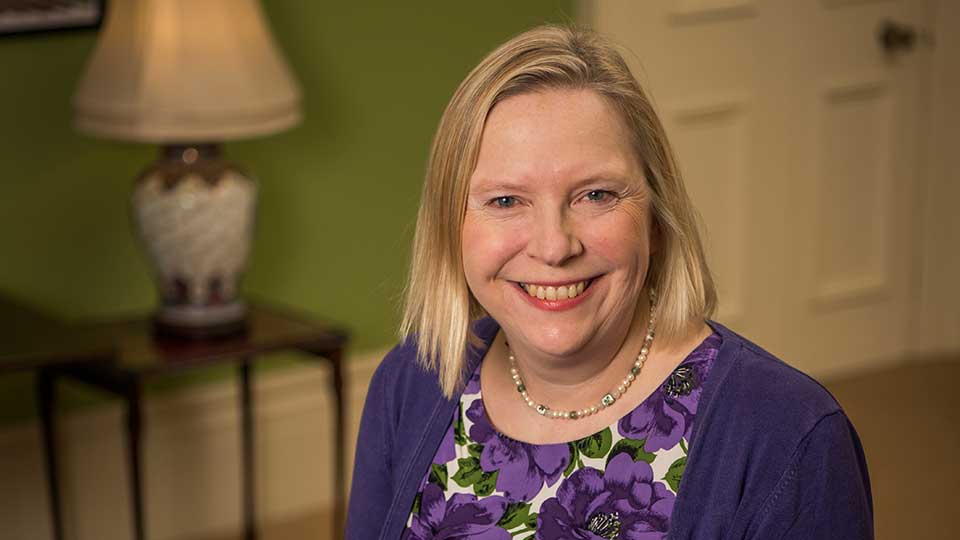Leadership as Right Relationship
by Charlotte Avery, Headmistress, St. Mary’s School, Cambridge
Leadership is all about relationship and good leadership is all about being in right relationship. Care and oversight of the individuals within any institution constitutes wise judgement because human beings are our most precious resource both from an economic perspective but more importantly from a moral imperative. The Association of School and College Leaders is currently defining its mission based on leadership that is bold, community based and ethical. Martin Seligman, a key exponent of the Positive Psychology movement, argues that wellbeing is created through positive relationships which create purpose and value which in turn leads to human flourishing. All of us who work as Christians leading Christian schools can say ‘Amen’ to both these perspectives and be absolutely intentional in bringing about such flourishing.

We are servant leaders following, as best we might, our Good Shepherd. Like a shepherd we set the path, being able to scan ahead of those who follow; when our colleagues err and stray, we bring them back to the right path; when the wolves prowl, we defend our people and our institutions. As Pope Francis said, a good shepherd knows the smell of his sheep – he gets amongst them. This is vital that we really understand the smell of the institution – is there a raw smell of fear or a stale smell of loneliness and isolation? Or, hopefully, an intriguing mix of smells reflecting the positively diverse range of staff in the school from teachers to administrators, cooks, cleaners, gardeners, maintenance teams, drivers, porters, technicians – and that doesn’t begin to describe our pupils from the infants in nursery provision to the young people about to embark on higher education, apprenticeships or paid employment!
Our communities are necessarily comprised of a range of personalities, ages, expectations and approaches to work and so we need to strive purposively to make a reality of the hope that we can creative inclusive and supportive communities rooted in optimism and joyful purpose, based on love and trust and compassion, where the individuals who make up that community flourish. The Good Shepherd knows his sheep by name and knows if one is lost: we, as leaders, need to know our community by name, acknowledging strengths and idiosyncrasies and inconsistencies and love each individual precisely because he or she – or zhe – is unique. As important is that we allow ourselves to be known, sharing our narratives and making ourselves vulnerable – a secular ‘kenosis’ if you like – by and through which each feels connected to each and each part of the community feels named, known and valued – as opposed to the barren opposite of feeling valueless, anonymous, irrelevant and ignored. It is always a question of building up and affirming even in difficult situations and conversations, acting with discernment and generosity, forgiveness and magnanimity.
If we expect our pupils to go out into the wider world understanding their potential and garnering their best selves in order to make a difference for the greater good, then not only do we need to be modelling this ourselves but enabling all our staff colleagues to be and do the same. Our communities are constantly evolving and the aim is to ensure that the dynamic remains rewarding and not simply an exhausting churn and so we need to model the sorts of behaviours that we are expecting for and in our young people. If, for example, we expect skills of collaboration in our young people then we need to demonstrate emotional connection as leaders and model that for our teams of senior leaders and middle managers as well as the classroom teacher and tutor. If we expect children to engage with the democratic process and speak out, then we need to be explicit in our assembly messages for our immediate inner circle of students and staff as well as being intentional in what we communicate to our second circle including parents and alumni. We also need to be the still small voice and the time taken to present a quiet compliment given face to face or the handwritten card of acknowledgement and gratitude which goes such a long way to allow both staff and students to know that their good, hard work and contribution is valued and matters. We need to be intentional in our praise, carefully ensuring that we acknowledge a range of skills, characteristics and experience, not simply upholding those in our own image or with our own interests. In turn, we also need to be accessible and vulnerable so that others in the community can indeed speak truth to power and mechanisms such as whistle blowing policies need to be clearly in place and readily accessible.
Communities have to be built on trust and leaders need to work hard to develop cultures of trust within their schools. Creating a culture of trust takes time and it is my contention that leaders need to abide in their communities, walking in loving accompaniment to use the Emmaus metaphor, which is so much more wholesome than the mechanistic metaphor of ‘working with’ people – after all we are not widgets on a factory conveyor belt! Trust is integral, relational and reciprocal: it starts from the basis of personal regard and moves to commitment through respectful dialogue, constructive open listening, appreciation of each other’s views and honest, careful feedback, offered always from and in love. I return to the notion of vulnerability; it is so powerful to be able to admit when mistakes have been made and to ask for forgiveness – which is particularly powerful when coupled with the affirmation of and care for others. Trust can be demonstrated by leaders when responsibilities are mindfully delegated and micromanagement is avoided whilst being visibly present around the school, listening to and speaking with the community.
Finally, in the busyness of doing we always need to recall our being. Communities need time to pause and reflect – we need to be able to model calm and discernment allowing space each day for prayer and reflection. We need to encourage an openness to spirituality in all the children in our care who may not necessarily come from Catholic or indeed Christian or other religious contexts. Every child has a soul and a spiritual dimension as does every staff member and it is our duty and our joy to look at a variety of methods by which spirituality and faith and prayer life can be cultivated in a society which is increasingly based on secular or material values. Some might wrap this up as mindfulness which is, in essence, secular prayer. As Christian leaders we need to be forthright evangelists as discerned by St Paul in his letters to the Philippians and the Romans of a radical message of Good News for community living writ large, in bold vocabulary and radical language not often heard in schools: that of love and joy.

